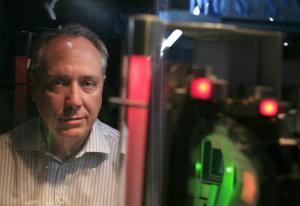You've got mail!
26 Mar 2010
-
Carlos Alejaldre, Deputy Director-General for Safety and Security
The French Minister of Economy and her colleague the Minister of Environment and Sustained Development will receive a rather large parcel this week—we have just mailed them the seven-volume, 5,243-page document that we call "the DAC files," short for Demande d'Autorisation de Création.
The completion of this fundamental legal document, which provides a detailed description of the ITER installation, an updated preliminary safety report (RPrS) and other required licensing files, marks a very important moment in the life or our project. A first step toward the Enquête Publique and the basis of future discussions with the French safety authorities, these documents will enable us to obtain our nuclear license.
On Thursday 25 March, ITER Director General Kaname Ikeda, here with DDG Carlos Alejaldre, signed the DAC files cover letter. The 5,243-page document is now in the hands of the French government.
Writing, laying out, printing, binding and sending off these 5,243 pages has been our priority for the past year and a half. We've all worked very hard to finalize these documents, not only in the Nuclear, Safety and Environment Division, which played a key part in the whole process or our Department for Safety and Security, but throughout our whole Organization. I want to thank you all for this very important contribution to the success of our project.
So what happens now? Experts at the two Ministries will analyze the DAC files, possibly request more information, and then pass them on to the Nuclear Safety Authority (ASN). ASN may also require complementary information before declaring that our application is "receivable." This back-and-forth process is expected to last until we get the green light to start the Enquête Publique — most probably in the autumn.
From that point on, we'll be embarking on a thirty-year scientific, technological and human adventure that has almost no equivalent in history.



